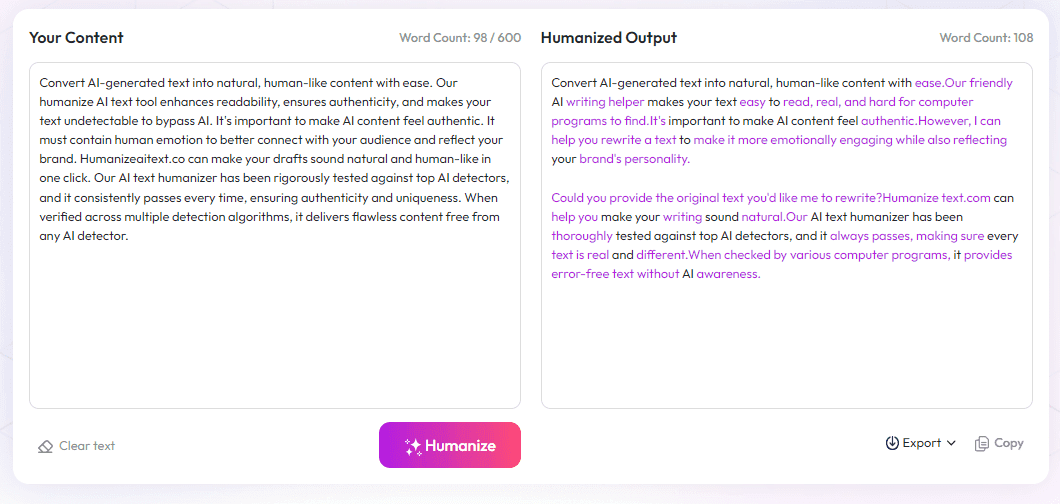Table of Contents
Building authority online might seem tough at first, but don’t worry—it's doable step by step. If you keep working on it, you'll start to stand out as a trusted voice in your niche, attracting followers and more opportunities. Stick around, and I’ll show you simple ways to boost your credibility and become an online authority without all the fuss. Ready? Let’s go!
Key Takeaways
Key Takeaways
- Consistently create high-quality content tailored to your audience's interests to build trust and authority. Use research tools to find popular topics and answer common questions. Publishing regularly and sharing genuine insights helps you stand out.
- Optimize your website for search engines by researching relevant keywords, structuring content clearly, and boosting credibility with external links and quality images. Regular site audits improve your visibility in search results.
- Use social media platforms strategically. Share your content, engage with followers, and participate in niche communities. Tracking post performance helps refine your approach and grow your audience.
- Show proof of your expertise through case studies, testimonials, and showcasing credentials. Third-party endorsements like guest posts and backlinks increase trust and authority in your field.
- Seek media features and recognition from reputable outlets. Pitch story ideas, build relationships with journalists, and participate in industry panels to enhance your credibility.
- Partner with established industry figures through guest blogging, joint webinars, or collaborations. These relationships lend credibility and help you reach new audiences.
- Engage with your community by responding to comments, joining conversations, and hosting events. Genuine interaction fosters loyalty and enhances your reputation as an authority.
- Create a clear content plan covering relevant topics and formats. Use analytics to prioritize high-performing themes, keeping your content fresh and aligned with audience interests.
- Regularly measure your results with analytics tools. Track traffic, backlinks, and engagement to identify what works, then adjust your strategies to strengthen your authority over time.

1. Create High-Quality, Targeted Content
The foundation of building authority online is consistently producing content that is both high-quality and tailored to your audience’s interests. Focus on offering real value—answer their questions, solve problems, or provide unique insights that they can’t find elsewhere.
Start by identifying what your target audience cares about most. Use tools like (https://trends.google.com/) or (https://answerthepublic.com/) to discover popular topics and common questions in your niche. This ensures your content hits the right chords and attracts the right visitors.
Once you know what your audience wants, craft well-researched, clear, and engaging articles or resources. For example, if you're aiming to establish authority in the writing niche, you could create detailed guides on writing compelling stories or tips for structuring a book.
Consistency is key. Publishing regularly keeps your site active and signals to search engines that your website is active and authoritative. Consider creating a content calendar to plan weekly or bi-weekly posts focused on trending or evergreen topics.
Don't forget to include actionable tips, examples, and real-world insights. For instance, sharing your personal process for writing or publishing a book can demonstrate your expertise authentically.
2. Optimize Your Website and Content for Search Engines
To make sure your content gets found, you need to optimize your website for search engines—this is called SEO. Start with keyword research; identify words and phrases your target audience searches for. Use tools like (https://www.semrush.com/) or (https://ahrefs.com/) to find relevant keywords with good search volume and low competition.
Place these keywords naturally within your content, titles, headers, and meta descriptions. For example, if your target phrase is “how to build authority online,” ensure it appears in your page title and first paragraph.
Structure your content with clear headers and short paragraphs, making it easy for Google and your readers to scan through. Incorporate internal links to your other relevant content and external links to reputable sites to boost credibility.
Optimize your images by compressing their size and including descriptive alt text. This not only improves your site’s loading time but also helps Google understand your visuals.
Use tools like (https://search.google.com/search-console/about) to monitor your site’s performance and fix issues that may hinder your visibility. Regular audits and updates keep your site optimized for evolving search algorithms.
3. Use Social Media Wisely to Grow Your Audience
While having a website is vital, social media acts as a powerful amplifier for your authority. Choose platforms where your target audience hangs out—be it Twitter, LinkedIn, Instagram, or TikTok—and start sharing your content regularly.
Post snippets, quotes, or quick tips that link back to your in-depth articles, keeping your followers engaged and inviting new ones to discover your work. Engaging with your audience in comments and discussions can help build relationships and establish your voice as an expert.
Leverage social media groups and communities relevant to your niche. Contribute helpful advice and answer questions to position yourself as a go-to resource. For example, if you are a writer, participating in writing groups can showcase your knowledge and generate backlinks to your content.
Use analytics tools native to each platform to track what types of posts perform best. This info guides you to refine your strategy and focus on content that resonates most with your followers.
4. Show Your Expertise with Proof and Case Studies
People believe experts who back up their claims. Sharing proof—such as case studies, testimonials, or examples of your work—establishes trust and credibility.
Create case studies that illustrate how you've helped clients or solved complex problems in your niche. For example, if you've helped a client publish their book, detail the process and results.
Don’t shy away from showcasing your credentials, awards, or speaking engagements. These act as social proof, demonstrating your legitimacy.
Include testimonials from satisfied customers or partners, especially on your website’s homepage or a dedicated proof page. Seeing real results from real people lets new visitors feel more confident in your expertise.
Publishing guest posts on reputable sites and earning backlinks from authoritative sources can also boost your authority. They serve as third-party endorsements that Google and your audience trust.
For actionable tips on writing compelling case studies, consider this (https://automateed.com/how-to-write-a-foreword/). It walks you through crafting stories that highlight your expertise effectively.

5. Get Featured in Media and Earn Third-Party Recognition
Getting media coverage and third-party recognition can dramatically boost your authority and credibility online.
Media features, interviews, and mentions from reputable outlets serve as social proof that you’re an expert in your field.
Start by creating a media kit that highlights your achievements, credentials, and the topics you can speak about.
Identify key media outlets, podcasts, or blogs in your niche and pitch timely, relevant story ideas or expert commentary.
Building relationships with journalists and influencers on platforms like Twitter or LinkedIn can open doors for coverage.
Leverage press releases to announce milestone achievements, product launches, or new content series.
Earn awards or recognitions from industry associations and showcase those on your website and social profiles.
Third-party badges or seals from credible organizations also help reinforce your authority.
Participate in interviews, webinars, or industry panels to share your insights and increase your visibility.
Monitoring your media mentions and handling PR efficiently can turn casual mentions into long-term reputation upgrades.
For insights on positioning yourself as a go-to authority, see how brands like **Forbes** and **Business Insider** do it by consistently sharing expert opinions and unique stories.
6. Partner with Other Industry Authorities
Collaborations with established authorities can help you tap into existing audiences and build your own reputation.
Look for opportunities to guest post on popular blogs, co-host webinars, or participate in joint projects.
Partnering adds credibility because endorsements or collaboration with recognized names act as a trust signal.
Identify industry leaders, influencers, and complementary brands who share your audience and reach out with mutually beneficial ideas.
Participate in expert roundups or joint research endeavors, which often attract attention from both audiences and search engines.
Reciprocal backlinks from respected websites boost your search rankings and authority in Google’s eyes.
Create co-branded content, like eBooks or podcasts, where both parties can share their expertise.
Attend or sponsor industry events and leverage those opportunities to connect with other key players.
Develop partnerships with associations or organizations that can endorse your work or offer visibility platforms.
Remember, these collaborations should be genuine and focused on providing value—spamming or superficial relationships do more harm than good.
Spotlight case studies or examples where strategic partnerships helped others fast-track their authority-building efforts, like how **HubSpot** partners with industry experts to expand its reach.
7. Engage Thoughtfully with Your Community
Building authority isn't just about broadcasting—engaging genuinely with your community makes your reputation stick.
Respond to comments on your blog, social media posts, and forums to show you're approachable and knowledgeable.
Join relevant online communities, such as Facebook groups or Reddit threads, where your target audience gathers.
Offer helpful advice and answer questions freely—this builds trust and positions you as a go-to resource.
Create dedicated space for feedback, like surveys or live Q&A sessions, to understand what your audience cares about most.
Be consistent in your interactions, but also authentic; people can tell when you’re genuinely interested versus just promoting.
Share user-generated content or success stories from your community to highlight their achievements and deepen relationships.
Hosting webinars, workshops, or live chats can foster a sense of community and demonstrate your leadership.
Respect differing opinions and handle disagreements gracefully, which earns respect and credibility.
Over time, active community engagement helps develop a loyal following that values your input and amplifies your authority.
8. Develop a Clear Content Strategy for Topic Coverage
Having a plan for covering relevant topics ensures you stay focused and consistently provide valuable content.
Start by mapping out core themes related to your niche; use tools like **Answer the Public** or Google Keyword Planner to identify content gaps.
Create a content calendar that balances different formats—articles, videos, infographics, and podcasts—based on your audience preferences.
Prioritize topics that align with your expertise and have high search demand but low competition for better visibility.
Cover a mix of evergreen content, trending issues, and niche-specific advancements to stay relevant.
Branch into subtopics and related fields to demonstrate comprehensive knowledge and establish topical authority.
Regularly audit existing content to identify gaps or outdated information that needs updating.
Coordinate your content efforts with larger industry events or seasonal trends to maximize reach.
Set clear goals for each piece—whether to educate, generate leads, or establish thought leadership—so your efforts are strategic.
Use analytics to see which topics resonate most and refine your approach based on what the data shows.
9. Track Results and Improve Your Approach Over Time
Building authority isn’t a set-it-and-forget-it task; it requires ongoing measurement and refinement.
Use tools like **Google Analytics** and **Google Search Console** to monitor your website’s traffic, engagement, and search rankings.
Track key metrics such as organic search traffic, backlinks earned, social shares, and mentions.
Set benchmarks so you can evaluate whether your efforts are paying off and where adjustments are needed.
Identify what types of content perform best and double down on those formats or topics.
Watch for emerging trends or shifts in audience interests and adapt your content strategy accordingly.
A/B testing headlines, calls to action, or publishing times can help optimize your results.
Regularly solicit feedback from your community to understand their evolving needs.
Review backlink profiles with tools like **Ahrefs** to see if your link-building efforts are effective.
Stay updated with SEO best practices, algorithm changes, and new industry insights to keep your approach fresh and relevant.
Remember, the key to long-term authority is persistence and a willingness to adapt as your industry and audience evolve.
FAQs
Creating valuable content attracts and retains visitors, builds trust, and encourages sharing. Consistently high-quality articles and resources position you as an authority and help increase your visibility online.
SEO helps your website rank higher in search results, increasing organic traffic. Proper optimization makes your content more discoverable and signals relevance to search engines, leading to more visitors and potential customers.
Share valuable content regularly, engage with your followers noticeably, and use targeted campaigns to reach your audience. Consistent interaction and authentic messaging help build trust and expand your reach.
Share case studies, testimonials, and proof of results. Publishing detailed articles, speaking at events, and earning media features also showcase your knowledge and reliability in your field.



